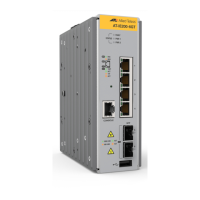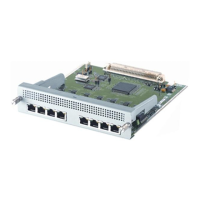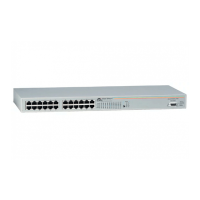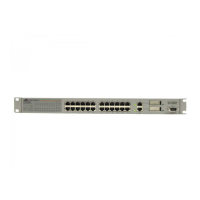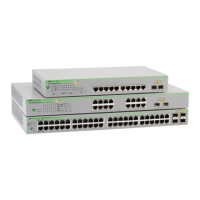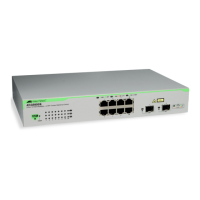C613-50631-01 Rev A Command Reference for IE340 Series 679
AlliedWare Plus™ Operating System - Version 5.5.3-0.x
VLAN COMMANDS
SWITCHPORT
VLAN-STACKING (DOUBLE-TAGGING)
switchport vlan-stacking (double-tagging)
Overview Use this command to enable VLAN stacking on a port and set it to be a
customer-edge-port or provider-port. This is sometimes referred to as VLAN
double-tagging, nested VLANs, or Q in Q.
Use no parameter with this command to disable VLAN stacking on an interface.
The port must be in access mode.
Syntax
switchport vlan-stacking {customer-edge-port|provider-port}
no switchport vlan-stacking
Default By default, ports are not VLAN stacking ports.
Mode Interface Configuration
Usage Use VLAN stacking to separate traffic from different customers to that they can be
managed over a provider network.
This command configures VLAN stacking on ports in access mode. For more
information about how to configure this feature, and for information about how to
configure VLAN double-tagging (VLAN stacking) on trunk ports, see the VLAN
Feature Overview and Configuration Guide.
Note that you must also set an MRU of 1504 or higher on the customer edge port,
using the mru command.
Traffic with an extra VLAN header added by VLAN stacking cannot be routed.
Example To apply vlan-stacking to the selected port, configure it to be a customer edge
port, and increase the MRU, use the following commands:
awplus# configure terminal
awplus(config)# interface port1.0.2
awplus(config-if)# switchport vlan-stacking customer-edge-port
awplus(config-if)# mru 10240
Related
commands
mru
Parameter Description
customer-edge-port Set the port to be a customer edge port. This port must
already be in access mode.
provider-port Set the port to be a provider port. This port must already
be in trunk mode.

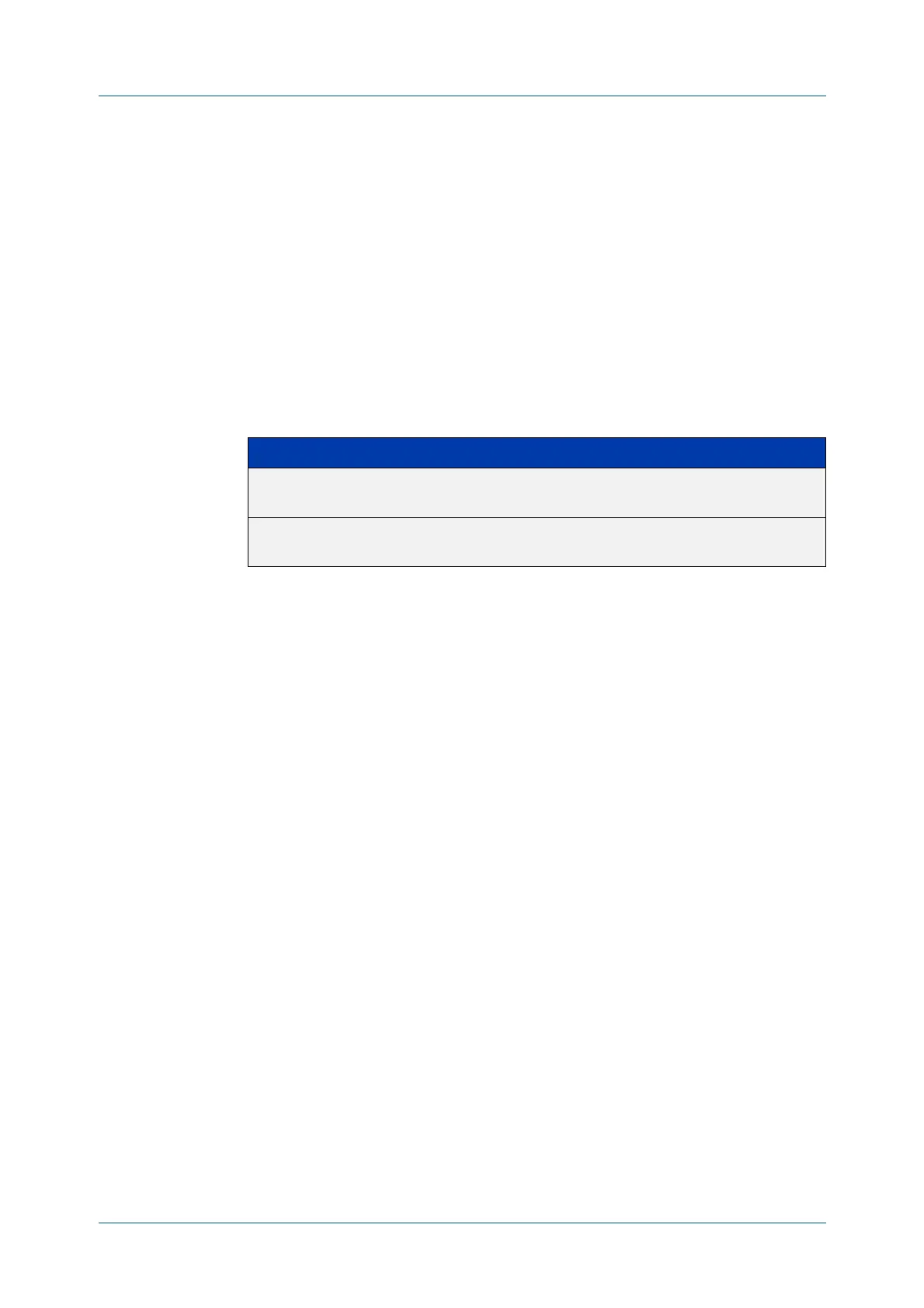